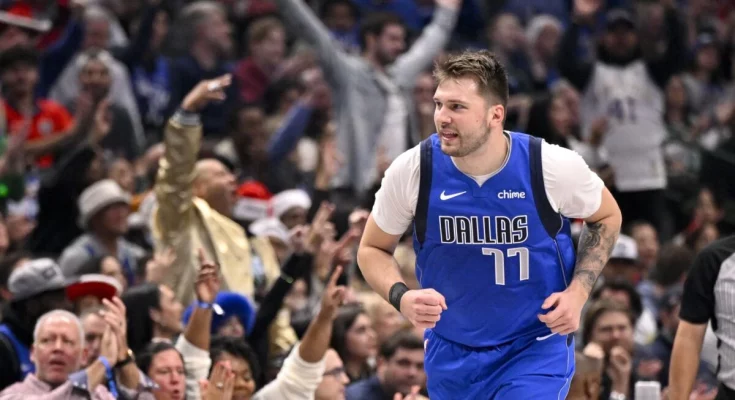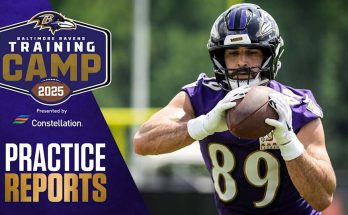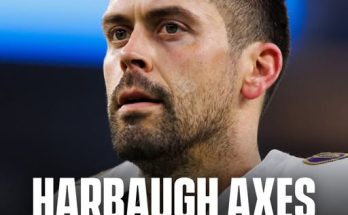It’s not often that you hear a name as transcendent as Luka Dončić being left out of a franchise’s all-time list, especially when that franchise is the very one he’s helped redefine since stepping foot in the NBA. But in a surprising twist that sent ripples through the basketball world, a former Dallas Mavericks teammate made waves by omitting Dončić from his personal list of Mavericks all-time greats. The omission has become a hot topic, not just for what it says about Dončić’s current standing in the eyes of some past players, but also for what it reveals about the shifting perceptions of greatness and legacy in today’s NBA. While fans were quick to flood social media with outrage and disbelief, basketball analysts and former players alike were left dissecting the reasoning behind this bold and unexpected snub.
The player in question, whose tenure with the Mavericks was marked more by reliability and veteran presence than star power, didn’t mince words. During a recent podcast appearance, he rattled off his list of all-time Mavericks, featuring legends like Dirk Nowitzki, Jason Kidd, Steve Nash, Michael Finley, and even Tyson Chandler. But when pressed on whether Luka Dončić deserved a spot, he hesitated before simply stating, “Not yet.” That pause, and the omission that followed, triggered immediate pushback. In the age of highlights, PER, and jaw-dropping stats, leaving Luka off any list tied to the Mavericks feels like leaving Shakespeare off a list of English authors or omitting The Beatles from the history of music.
Dončić, who has only been in the league since 2018, has already accomplished feats that have put him in elite company. He became the youngest player in NBA history to record a 30-point triple-double in the playoffs, has already amassed numerous All-NBA First Team selections, and has made deep playoff runs with the Mavericks, including a trip to the Western Conference Finals. Statistically, he is on a trajectory matched by only a handful of names—LeBron James, Magic Johnson, Oscar Robertson. And yet, in the eyes of a former teammate, he still doesn’t rank among the Mavericks’ all-time elite. It’s a stance that has reignited debates about what constitutes legacy. Is it rings? Longevity? Loyalty to one franchise? Or is it pure, unfiltered dominance, the kind Luka displays almost nightly?
The most striking part of this story isn’t just the omission itself, but the implications behind it. It suggests there is still a contingent of old-school thinkers in and around the league who believe greatness must be earned over the long haul, through battles, bruises, and perhaps even championships. The former teammate argued that while Luka’s talent is undeniable, he hasn’t “done enough” to warrant a spot on an all-time list—at least not yet. According to him, being great in a vacuum is one thing, but cementing that greatness with accolades that endure, like winning a championship or staying loyal to a team for a decade or more, is what truly counts.
This logic, while understandable to a degree, ignores the context of Luka’s rise. The Mavericks have not exactly surrounded Dončić with championship-level talent. Despite flashes of brilliance from co-stars and moments of promise, the franchise has often fallen short in providing the kind of depth that can realistically compete for a title. Yet Luka has remained fiercely loyal, publicly committing to Dallas multiple times and consistently expressing a desire to bring a championship to the city. In many ways, he has embodied everything fans claim to love about their superstars—loyalty, passion, and relentless excellence.
One could argue that the snub says more about the former teammate’s criteria than it does about Luka. Perhaps it’s a reflection of a bygone era where players were judged less by statistical wizardry and more by rings and grit. But even under those standards, Luka doesn’t fall short. He has carried the Mavericks through numerous playoff battles, routinely put the team on his back in clutch moments, and has brought a level of excitement to the franchise that hasn’t been seen since Dirk Nowitzki hoisted the Larry O’Brien Trophy in 2011. Fans who watched Dončić drag the Mavericks past higher-seeded teams with sheer brilliance might find the omission borderline disrespectful.
What also struck many as curious was the inclusion of players whose tenure with the Mavericks, while significant, didn’t match Luka’s impact. While names like Nowitzki and Kidd are unquestionable choices, others—like Chandler or even Finley—while beloved, didn’t necessarily redefine the franchise or lead the team in ways Luka already has. This further fueled criticism that the list might be based more on personal relationships, nostalgia, or even quiet resentment toward the current state of NBA stardom, which Dončić represents with flair and fearlessness.
In fairness to the former teammate, there’s always a danger in naming “all-time” lists that include active players. The story is still being written. But what makes Luka’s exclusion so jarring is how much he’s already authored. His fingerprints are all over the modern Mavericks. From jersey sales to international fan engagement, to game-winning buzzer-beaters that feel almost scripted for Hollywood, Dončić isn’t just a star—he’s become a cultural force. And with each passing season, his numbers swell and his legend grows. Every year, the question becomes not if he’ll be an all-time Maverick, but how high up the ladder he’ll climb. Most fans and analysts believe it’s only a matter of time before he passes everyone but Dirk. Some even argue he’s already second.
The snub also raises questions about the dynamics between former teammates. Was there friction during their time together? Was it professional competitiveness masked as “standards?” While no public falling out between Dončić and the former player has been documented, sometimes the subtle things—a lack of praise, veiled critiques, or even snubs like this—speak volumes. It wouldn’t be the first time a rising star has unsettled the veterans around him. Greatness, especially when it arrives fast and unapologetically, can ruffle feathers. And Luka has always carried himself with a certain confident swagger, one that can sometimes be misinterpreted as arrogance, especially by those who came up in a different, less social-media-driven NBA.
Social media, of course, lit up the moment the list was released. Fans defended Dončić with passion, pointing out his historical pace, his playoff heroics, and his value to the Mavericks franchise. Many wondered aloud if the former teammate was simply “hating,” jealous, or clinging to an outdated definition of greatness. Others used it as an opportunity to discuss a broader issue: the difficulty some veterans have in acknowledging the greatness of younger players. There is an undeniable generational tension in the NBA today, where older players often bemoan the state of defense, pace, or the three-point revolution, while younger stars thrive under those very conditions. Luka, with his combination of old-school craftiness and modern flair, has always bridged that divide—but not in the eyes of all.
The Mavericks organization has remained silent on the issue, though some current players have thrown subtle support behind Luka. One posted an Instagram story with a photo of Dončić captioned “That’s OUR guy.” Another posted a goat emoji after Luka dropped 42 points in a preseason game. Whether or not these were in direct response to the snub is anyone’s guess, but the timing seemed less than coincidental. Dončić himself has yet to respond publicly, though knowing his competitive nature, it wouldn’t be surprising if the next time he’s mic’d up during a game, we hear him mutter something sly after draining a step-back three.
Ultimately, the debate over Luka Dončić’s place in Mavericks history says as much about the evolution of basketball narratives as it does about the player himself. We now live in a world where legacy is debated in real time. Players don’t get the benefit of waiting until retirement before their names are stacked against the greats. In some ways, that’s a tribute to how incredible Luka already is. That a former teammate even has to consider whether Luka belongs on an all-time list just six seasons into his career is itself a signal of his meteoric rise.
Still, the sting of being left off a list so close to home can’t be denied. For fans of Luka Dončić, the omission felt not just like a slight—it felt like an insult to their loyalty and memory. For Luka himself, it may serve as fuel. If past slights have taught us anything about elite athletes, it’s that they rarely forget. Whether it’s Michael Jordan inventing offenses or LeBron James retweeting doubters, the greats always find ways to turn disrespect into dominance. And Luka Dončić, with his unique mix of creativity, intelligence, and confidence, seems primed to do exactly that.
So the next time he drops 50 in a playoff game or hits a dagger three in the dying seconds, maybe the camera will catch that extra smirk, that subtle nod, that unspoken message sent not just to opponents—but to those who still dare question his place in Mavericks lore. Because if there’s one thing we’ve learned, it’s that Luka Dončić doesn’t just play the game—he rewrites it, one masterpiece at a time.



